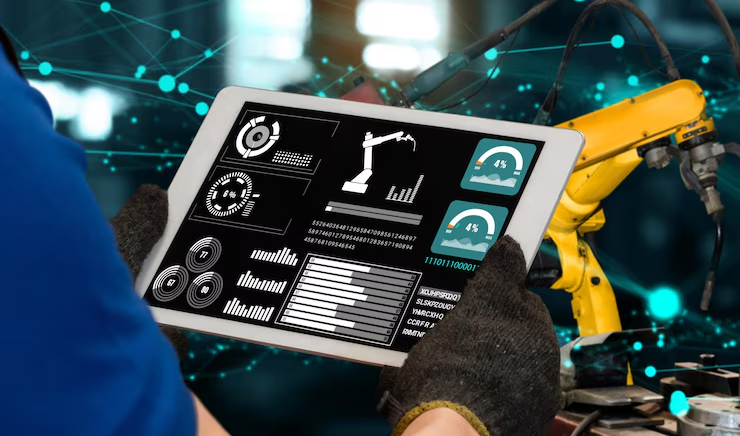Introduction
In our rapidly evolving world, the terms Technical vs Technological often appear interchangeably, creating confusion about their meanings and implications. While both play integral roles in shaping industries and everyday life, they represent distinct concepts.
This article unpacks the differences between technical and technological, explores their historical development, and highlights their significance across various domains. Whether you’re an enthusiast, a professional, or just curious, understanding these concepts will provide valuable clarity and insight.
Understanding the Definitions of Technical and Technological
What Does Technical Mean?
“Technical” pertains to specialized knowledge, skills, and expertise in a specific area or task. It often focuses on the practical application of knowledge, emphasizing hands-on capabilities, precision, and troubleshooting.
For example:
- A software engineer debugging code uses technical skills.
- A technician repairing a car engine applies technical knowledge.
What Does Technological Mean?
“Technological” relates to the use of scientific principles and innovations to develop tools, processes, or systems that solve problems or improve efficiency. It often involves broader applications that leverage cutting-edge advancements to create new possibilities.
For example:
- Smartphones, blending communication and computing, are technological innovations.
- Renewable energy solutions like solar panels represent technological advancements.
Key Difference
While technical focuses on “how” tasks are performed, technological explores “what” can be achieved using advancements in science and innovation.
Historical Context of Technical and Technological Advancements
Technical Developments Through Time
From ancient civilizations crafting tools like stone axes to the mastery of metallurgy, technical skills have been fundamental to human survival and development. Early artisans and builders relied on Technical vs Technological expertise to construct monuments, develop transportation systems, and innovate weaponry.
Technological Breakthroughs in History
Technological advancements, on the other hand, have broader implications. The wheel revolutionized transportation, while the steam engine powered the Industrial Revolution. Modern technology—from the internet to artificial intelligence—has interconnected societies and driven exponential growth.
Key Milestones:
- 18th Century: Steam engines transformed manufacturing.
- 20th Century: Inventions like airplanes, automobiles, and computers revolutionized industries.
- 21st Century: Smartphones and AI redefine connectivity and decision-making.
The Roles of Technical and Technological in Society and Industry
Technical Solutions: Precision and Application
Technical roles are crucial for maintenance, repair, and execution. Examples include:
- Healthcare: Technicians operating medical imaging devices.
- Manufacturing: Skilled workers ensuring machinery functions optimally.
Technological Innovations: Innovation and Growth
Technological advancements drive large-scale transformation. Examples include:
- Transportation: Electric and autonomous vehicles.
- Energy: Solar and wind technologies addressing climate challenges.
Both are complementary—technical expertise ensures the proper functioning of technological systems, while technology expands the scope of technical applications.
Examples of Technical and Technological Innovations
Technical vs Technological Innovations
- Renewable Energy: Engineers designing efficient solar panel installations.
- Medical Imaging: Technicians using MRI machines for diagnostics.
Technological Innovations
- Internet of Things (IoT): Smart devices enabling remote home control.
- Artificial Intelligence (AI): Revolutionizing industries with data-driven solutions.
Real-Life Integration
In scenarios like installing solar panels, the technical aspect involves skilled professionals positioning the panels, while the technological aspect pertains to the solar technology itself.
Benefits and Limitations of Technical vs Technological Solutions
Benefits of Technical vs Technological Solutions
- Reliability: Based on proven methodologies.
- Precision: Suitable for specialized tasks.
- Accessibility: Easier to train and implement.
Limitations of Technical vs Technological Solutions
- Scalability Issues: Limited adaptability to broader applications.
- Dependency on Human Expertise: Requires manual intervention.
Benefits of Technological Solutions
- Scalability: Easily adjustable to varying needs.
- Efficiency: Automation reduces errors and time consumption.
- Innovation Potential: Constantly evolving capabilities.
Limitations of Technological Solutions
- Implementation Costs: Initial setup can be expensive.
- Reliance on Technology: Risk of over-dependence.
Future Outlook for Technical and Technological Development
The future of technical and technological development holds immense promise. Emerging trends include:
Artificial Intelligence and Machine Learning
AI-powered solutions will redefine healthcare, education, and more.
Renewable Energy
Advances in solar, wind, and energy storage will drive sustainability.
Internet of Things (IoT)
Interconnected devices will further enhance automation and data utilization.
Healthcare Innovations
Technological breakthroughs, such as precision medicine, combined with Technical vs Technological expertise, will transform patient care.
Conclusion: Choosing the Right Approach for Your Needs
Understanding the distinction between technical and technological is crucial for making informed decisions. While Technical vs Technological solutions provide precision and reliability for specific tasks, technological innovations offer scalable and transformative advancements.
For optimal results, many industries blend both approaches—leveraging Technical vs Technological expertise to implement and maintain cutting-edge technological solutions. As we navigate a rapidly evolving world, recognizing the synergy between these two domains will be key to driving progress and achieving success.


